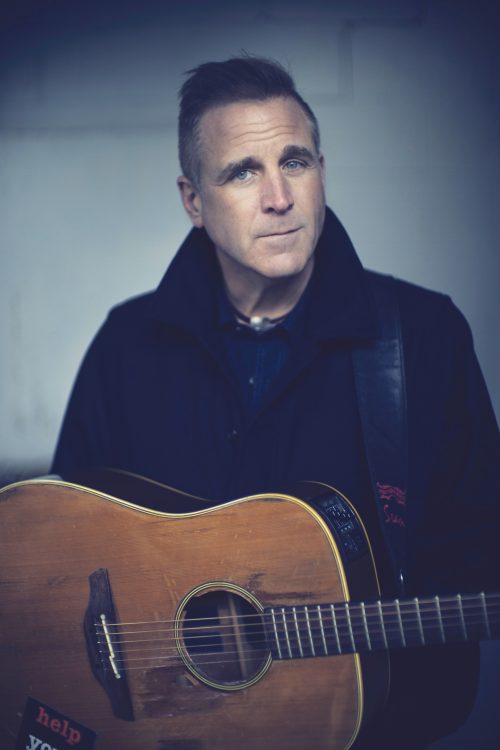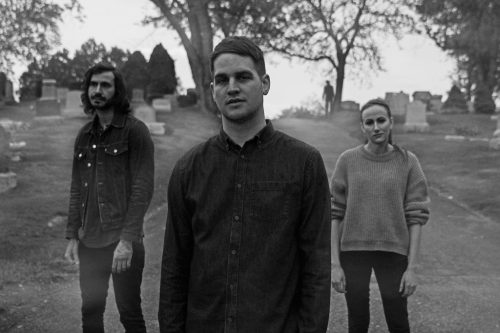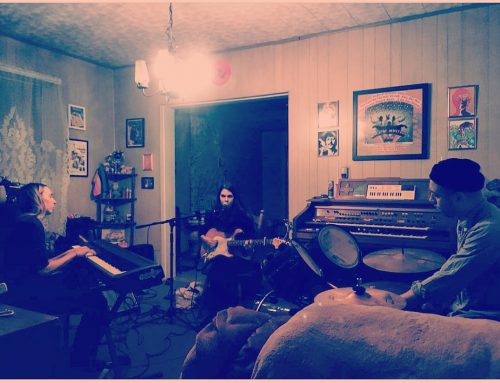Much has been made about the healing power of music, to the point of cliche. But for Séan McCann, it’s proven a constant anchor in a life that has sometimes found him adrift. Ten years sober and a survivor of sexual abuse by his parish priest, McCann, a founder of the popular Canadian folk band Great Big Sea, was feeling despondent during coronavirus lockdown, missing the interaction of a live audience. He revisited his love for sea shanties, traditional tunes originally sung as work songs by sailors.
“I’d been The Shantyman my whole life,” McCann says of the resulting album of the same name, released last fall. “I was actually doing my masters in folklore when Great Big Sea blew up. I’m kind of a folk nerd. I’ve kept an active file of songs, I probably have another 85 or so I’d like to record. Those songs tend to come and go when I need them. They’re great audience participation songs for shows.
“During COVID I had kind of gotten away from that genre for a while, just writing my own songs, but the more I wrote the more they started sounding like sea shanties. When we got into the second winter of COVID, I was kind of at a low point, doing virtual shows, which pay the bills, and not really being able to sing standing in front of a crowd. I didn’t realize it, but that was kind of having a negative effect. One day, my wife said, ‘Just belt one out, man.’ I went out to my little studio and just started singing shanties, full voice, as long as my belly could push out. I sang for about an hour. Annoyed as my kids were, they noticed that I had a big smile on my face and I felt good, and it was just the catharsis of physically singing out loud that changed my mindset.”
McCann chatted with us about his unique musical and life journey in advance of his show at Karl Hall in Wilkes-Barre on Sunday, July 3. His “Shantyman Sings for America” tour will also take him to City Winery in Philadelphia on Thursday, July 7.
You’ll be performing at Karl Hall for the first time. How would you describe the presentation you’ll be putting on for this tour, especially for people who haven’t come to see you before?
I’ve unchained myself. Great Big Sea had the same setlist for 20 years. I usually just stand in front of an audience, and I’ll assess them and try to bring out what we all need that night. I can’t afford to bring the band anymore, and honestly I don’t want to be on a tour bus anymore. If I can show up on stage with a guitar, [the audience] has a role to play. It’s not a quiet show in that way. We all have a job to do.
Why did you decide to share the story of your sexual abuse publicly?
I was doing a keynote [speech]. I had been sober for a couple years. I was asked to do a keynote at a recovery breakfast with thousands of people as an example for success. I was starting to realize people drink and use drugs for a reason, and I knew what my reason was but I was choosing not to talk about. Paulie O’Byrne, the hockey player, did the introduction and he shared that he was sexually abused and that was his reason for his addiction. My biggest fears, I was so terrified of doing that, and not only did he not burst into flames but he went back down and sat next to me, and he looked lighter. I learned by watching and saw this person do what I felt I couldn’t do, and because of that I saw that it could be done. I instantly felt better. I felt the weight of the secret go away. It was a huge lesson learned and a powerful thing to witness. When you see someone say, “I’m not afraid to go there,” it sets an example and helps people get there in their own mind. Once you start to go down that path, then you can have a successful recovery of your own.
What role has music played in your recovery?
I wrote this record called “Help Yourself,” which is really the sound of me helping myself (laughs). Music was the help. If you listen to that — it’s on my website — it’s really hard-wired, it’s very fresh, these songs, these mini anthems to kind of encourage myself to not give up and keep going. Like many addicts, I tried and failed many times to say sober.
You’ve said you regret how Great Big Sea ended. Is there any chance of a reunion?
You know, I’ve actually recently spoken to a former bandmate, and there is a desire because it’s our 30-year anniversary next year. I was sober on the last tour on the bus, which was a mistake — only sober guy on a bus of 10 his not a happy place to be. So that ended badly. We hadn’t been in touch since. I’ve kind of … This year, given certainly since COVID and all the things we’ve been going through, and now the war in Ukraine, the division in America and Canada and all over the world, this division, I feel like our disputes are so small. I don’t honestly care anymore (laughs). I don’t want to get back on a bus. I don’t want to have fights about money. I don’t want to ever play in a hockey rink again. I just don’t. I really don’t want to contribute to any more conflict in this world anymore. I’m trying literally not to have arguments and be peaceful with everyone, and in that spirit let them know I’m available to do one more show just to create a truce. I put it out there on social media, and I meant it. Then immediately the argument was where will that concert be? (laughs) So immediately there was something to argue about.
Let’s all agree that we all want to do that and we’re still up for that. Hopefully it will happen some time in 2023. If not next year, it probably never will happen.




Leave a Reply